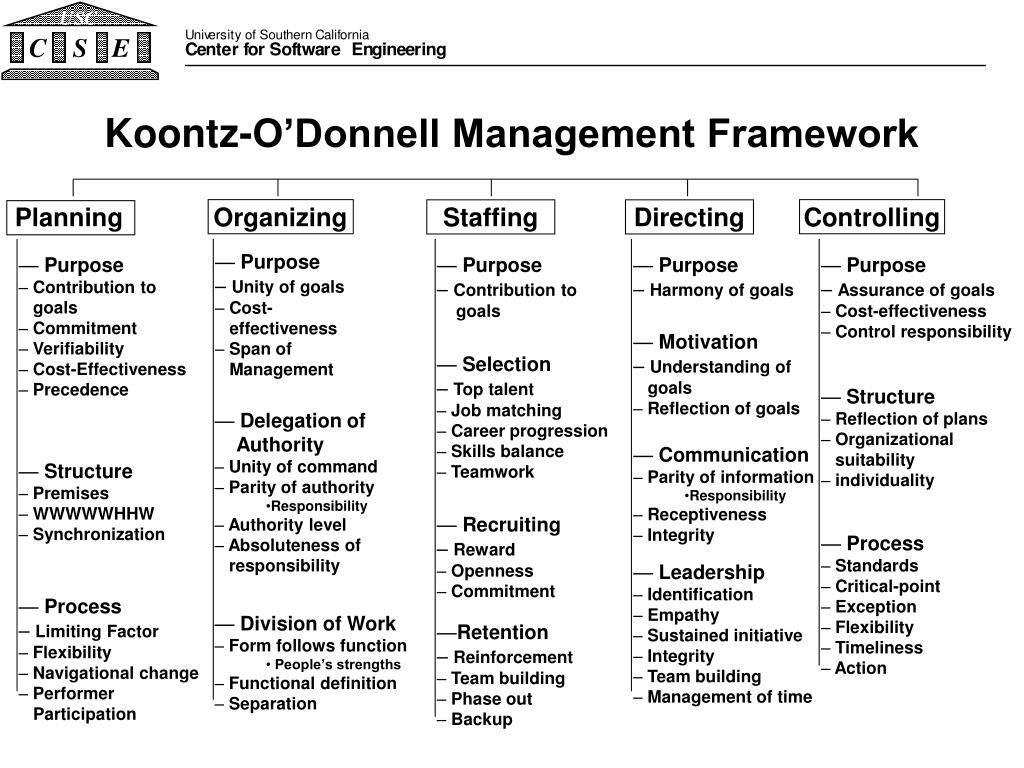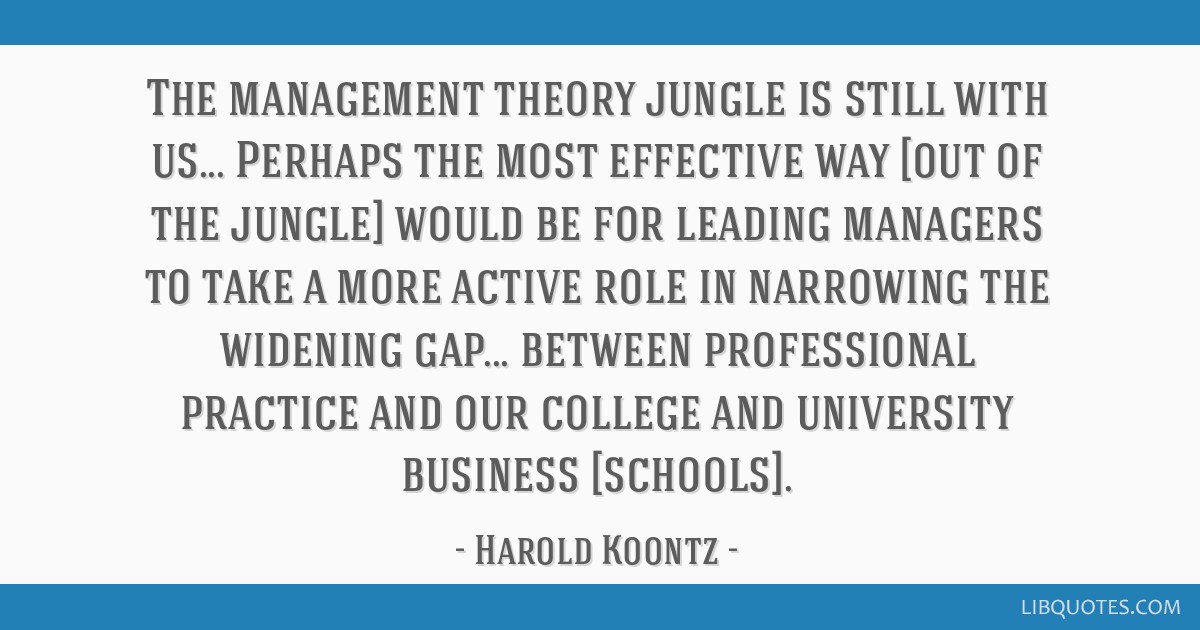

Planning can cover a period over which commitment of resources can be clearly visualized.īuilding flexibility in planning is beneficial, but cost of building flexibility needs to be evaluated against the benefits.

Select the plan which is the most effective and the most efficient to the attainment of a desired goal.Ĭonsider limiting factor in generating alternatives and selection from alternatives. Principles Applicable to Process of Planning If more policies, appropriate to the organization, are expressed in clear terms and form and if managers understand them, the plans of the enterprise will be more consistent. If more people in an organization use common and consistent planning premises, the enterprise planning will be more coordinated. Principles Applicable to Structure of plans Every action of the manager follows a planning step. Planning is the primary prerequisite for all other functions of management. Video - Principles of Management - Koontz and O'Donnell - Quick ReviewĮvery plan has to contribute positively toward the accomplishment of enterprise objectives.Įfficiency is measured by the contribution of the plan to objectives of the enterprise minus the costs and unsought for consequences in formulating and implementing the plan. He has to ensure that these principles are applied and if any exceptional situation is there, managers should ignore the principles consciously and be clear in their mind they chose not to use them due to the exceptional nature of the situation. But a professionally educated and trained manager must use them explicitly. Managers have to set in a procedure to revise these principles periodically so that they can recollect the relevant principles when performing the managerial tasks and explicitly consider the relevance and application of these principles in their practice. Harold Koontz and Cyril O’Donnell, in their book, Principles of Management: An Analysis of Managerial Functions, clearly described the principles to be used in performing various functions of management. And lastly, the unwillingness of management theorist to understand each other._ _ The misunderstanding of principles through trying to disprove an entire framework when one principle was violated in practice.

Problems in defining management as a body of knowledge which led leads to entanglement as theories in various schools compete to fill the body of knowledge. There is a lack of universal recognized definitions in maintenance. Semantics jungle refers to the definitions of certain words or terms in maintenance. Problems occurred when there is a jungle of confusing and conflicting theories. Therefore, each of these school would provide insight and methods to aid manager in performing task, hence were tools not school. For example, the field of human behavior should not be judged the equivalent of the field of management, nor should a focus on decision making or mathematics be considered as encompassing the entire area of analysis. He said that each school had something to offer to management theory but suggested one should not confuse content with tools. They included the management process, empirical, human behavior, social system, decision theory and the mathematical school. Koontz defined the management theory jungle by identifying and classifying major management theory. This has resulted to confusion and conflict which many theories have entangled in it. 'Management Theory Jungle' was made in an environment where the development of management theory had escalated over a period of two decades. It was Harold Koontz who introduced the concept of Management Theory Jungle.


 0 kommentar(er)
0 kommentar(er)
